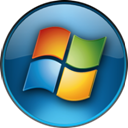Uncovering the Best CRUX Linux Alternatives for Power Users
CRUX Linux, celebrated for its minimalist design, tar.gz-based package system, and focus on simplicity and modern features, is a go-to for experienced Linux users. However, its targeted nature might lead some to explore other distributions that offer different levels of user-friendliness, feature sets, or community support. If you're seeking a CRUX Linux alternative that still caters to a powerful, customized Linux experience, you've come to the right place.
Top CRUX Linux Alternatives
Whether you're looking for a slightly more forgiving installation, a broader software repository, or a different philosophical approach to system management, these alternatives offer compelling reasons to consider them over or alongside CRUX Linux.

Ubuntu
Ubuntu is a widely popular Debian Linux-based open-source operating system available for Free on Windows and Linux platforms. As a CRUX Linux alternative, Ubuntu offers a more user-friendly experience with its extensive software repositories, robust community support, and features like customizable desktops, OTA Updates, and the APT package manager, making it ideal for those seeking a less hands-on approach while still retaining control.

Debian
Debian is a cornerstone of free and open-source operating systems, available across various platforms including Linux and BSD. As a CRUX Linux alternative, Debian emphasizes stability and provides a vast collection of packages, making it a reliable choice for users who appreciate a robust and well-tested system. Its features include a rolling release option, extensive customization, and low memory usage, appealing to users who value control and efficiency.

Linux Mint
Linux Mint is a highly popular, user-friendly open-source Linux distribution, building upon the foundations of Ubuntu and Debian. For those looking for a CRUX Linux alternative that offers a more out-of-the-box experience with a familiar interface, Linux Mint is an excellent choice. It boasts features like customizable desktops (Cinnamon, XFCE support), ad-free usage, built-in file managers, and strong privacy focus, making it approachable for a wider range of users.

Arch Linux
Arch Linux is an independently developed, open-source GNU/Linux distribution known for its focus on simplicity, modernity, and user centrality, much like CRUX Linux. As a CRUX Linux alternative, Arch appeals to competent Linux users who desire a highly customizable and bleeding-edge system. Its rolling release model, the Arch User Repository (AUR), and comprehensive Wiki documentation make it a powerful choice for those who enjoy building their system from the ground up and staying on the forefront of software development.

Manjaro Linux
Manjaro Linux is a user-friendly open-source Linux distribution based on Arch Linux. If you appreciate the power and flexibility of Arch but desire a more approachable installation and out-of-the-box experience, Manjaro is a fantastic CRUX Linux alternative. It offers rolling releases, stability, a clean design, and strong community support, making it an excellent bridge for users transitioning from simpler distributions to more advanced ones.

Windows 7
Windows 7 is a commercial operating system by Microsoft. While fundamentally different from CRUX Linux's open-source, minimalist philosophy, Windows 7 serves as an alternative for users seeking a widely supported, proprietary operating system with a vast software ecosystem and features like snap windows and Windows XP compatibility. It's suitable for users prioritizing broad hardware and software compatibility over deep system customization.

Fedora
Fedora is a free and open-source Linux distribution sponsored by Red Hat, known for its focus on innovation and bleeding-edge software. As a CRUX Linux alternative, Fedora provides a robust and modern operating system with an in-built GUI, desktop environments, and extensive customization options. It's an excellent choice for developers and users who want access to the latest Linux features and tools right out of the box.

elementary OS
elementary OS is a free, fast, and aesthetically pleasing open-source operating system based on Ubuntu. As a CRUX Linux alternative, elementary OS stands out with its macOS-like, distraction-free UI and focus on user experience. It offers a curated app center, Flatpak support, and is lightweight, making it an ideal choice for users who prioritize a beautiful, intuitive, and efficient desktop environment without sacrificing the power of Linux.

macOS
macOS is a proprietary, Unix-based operating system developed by Apple Inc., pre-installed on Macintosh computers. While a stark contrast to the open-source nature of CRUX Linux, macOS serves as an alternative for users seeking a highly polished, integrated ecosystem with strong privacy features and a consistent UI. Its Unix-like foundation and features like Spotlight and QuickLook File Preview offer powerful functionality within a user-friendly environment.

FreeBSD
FreeBSD is an advanced open-source operating system for various architectures, including x86 and amd64, part of the BSD family. For experienced users looking beyond Linux, FreeBSD offers a robust and stable Unix-like operating system that shares CRUX Linux's focus on simplicity and control, but with a different kernel and package management. Its geeky appeal, ARM support, and powerful package control make it a compelling alternative for those who want a reliable and highly configurable system.
Each of these CRUX Linux alternatives brings its own strengths to the table, catering to diverse preferences, from those who love building their system from scratch to users seeking a more out-of-the-box, user-friendly experience. Explore their features and communities to find the perfect fit for your Linux journey.